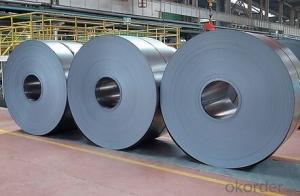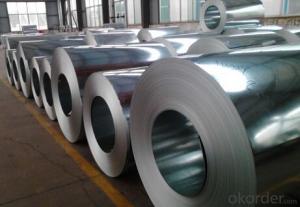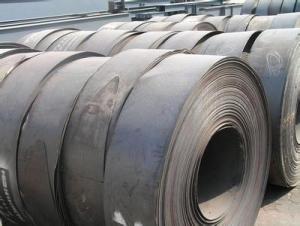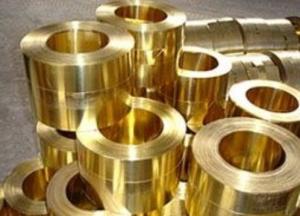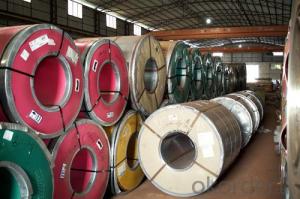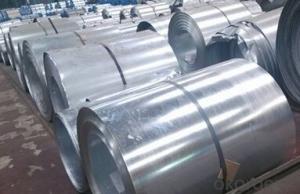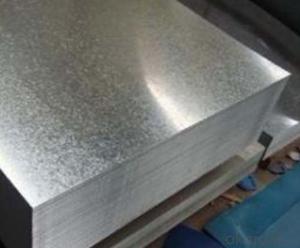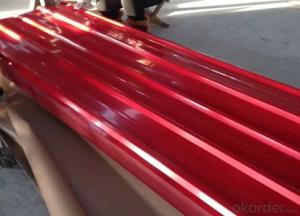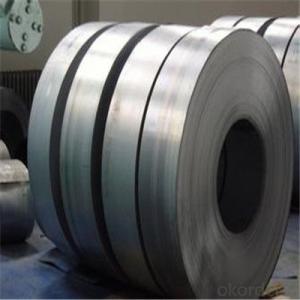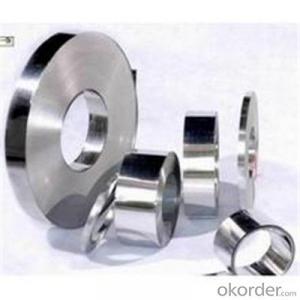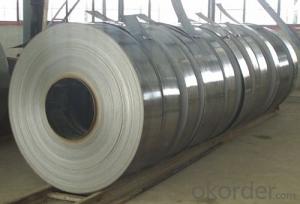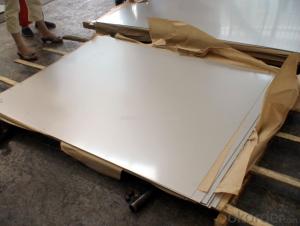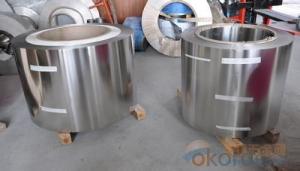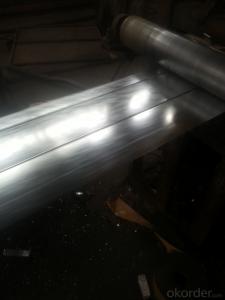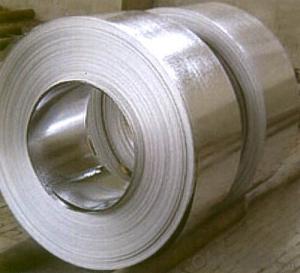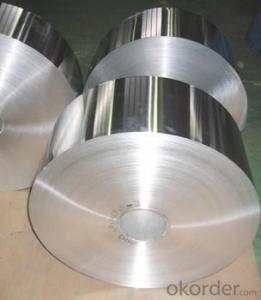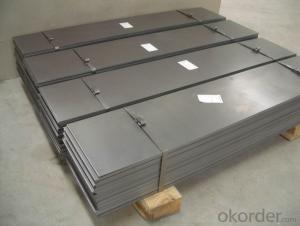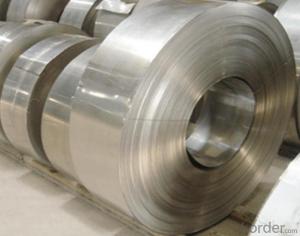Best Quality Cold Rolled Steel Coil JIS G 3302
- Loading Port:
- Tianjin
- Payment Terms:
- TT OR LC
- Min Order Qty:
- 50 m.t.
- Supply Capability:
- 22222 m.t./month
OKorder Service Pledge
OKorder Financial Service
You Might Also Like
1.Structure of Cold Rolled Steel Description:
The raw material of cold rolled steel coil/sheet is high quality hot rolled product, and after pickling continuous rolling, degreasing, annealing,skin pass,slitting and cut to length line etc. Along with it many kinds of new technology and new process of global cold rolling production have been applied. Therefore the quality of the goods could be guaranteed. The product is widely used in outdoor and interior decoration, furnishing manufacturing, home appliance, automobile etc.
2.Main Features of the Cold Rolled Steel:
• Excellent process capability
• Smooth and flat surface
• Workability, durability
• Excellent heat resistance performance
• High strength
• Good formability
• Good visual effect
3.Cold Rolled Steel Images
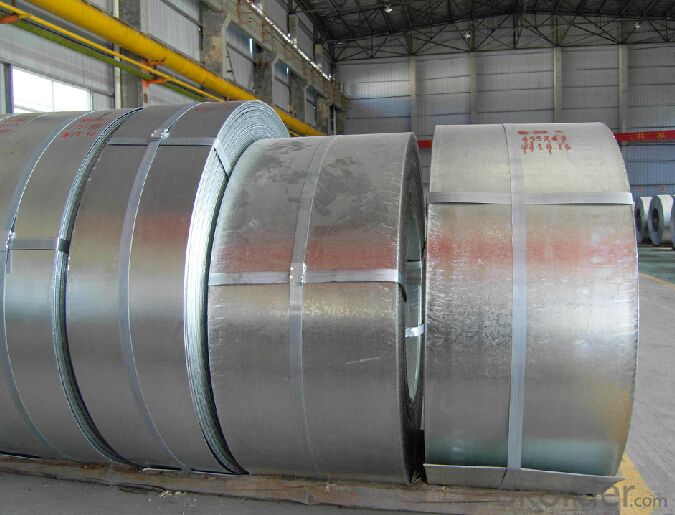
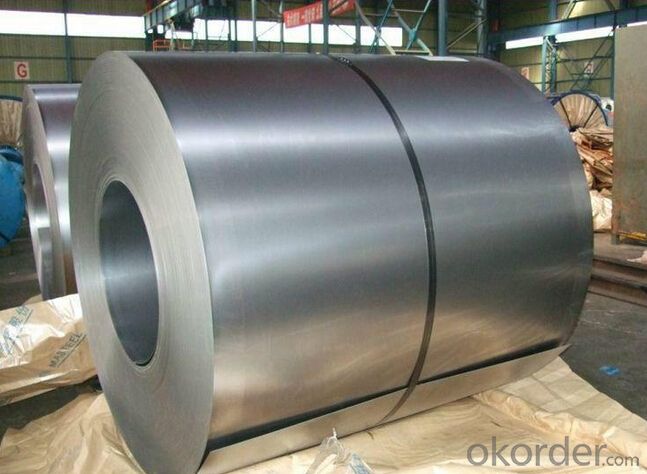
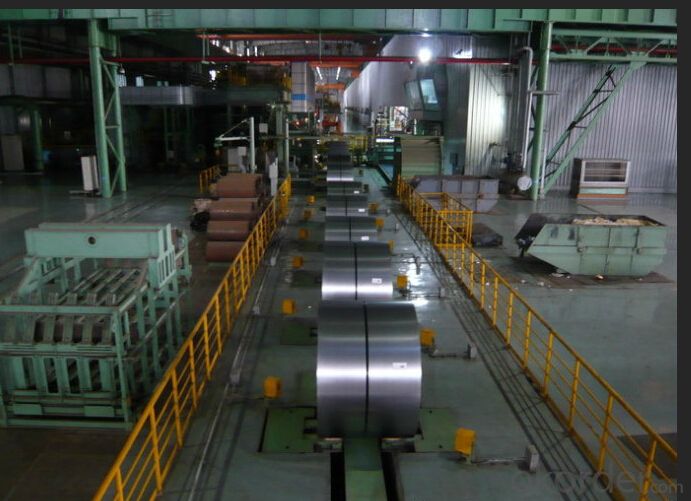
2.Cold Rolled Steel Specification
Standard:AISI,ASTM,DIN,GB,JIS,JIS G3302 ASTM 653M EN10142
Grade: Q195~Q345
Thickness: 0.16mm~1.5mm,0.16-1.5mm
Width: 1250,600-1250mm
Coil weight:3-12 MT
Coil ID:508/610mm
Chemical composition:
C | Si | Mn | Cr | Ni | P | S |
0.150 | 0.476 | 11.231 | 12.50 | 0.900 | 0.039 | 0.010
|
5.FAQ of Cold Rolled Steel
We have organized several common questions for our clients,may help you sincerely:
1.How about your company?
A world class manufacturer & supplier of castings forging in carbon steel and alloy steel,is one of the large-scale professional investment casting production bases in China,consisting of both casting foundry forging and machining factory. Annually more than 8000 tons Precision casting and forging parts are exported to markets in Europe,America and Japan. OEM casting and forging service available according to customer’s requirements.
2.How to guarantee the quality of the products?
We have established the international advanced quality management system,every link from raw material to final product we have strict quality test;We resolutely put an end to unqualified products flowing into the market. At the same time, we will provide necessary follow-up service assurance.
3. How long can we receive the product after purchase?
Usually within thirty working days after receiving buyer’s advance payment or LC. We will arrange the factory manufacturing as soon as possible. The cargo readiness usually takes 15-25 days, but the shipment will depend on the vessel situation.
- Q:How do steel strips perform in terms of electric insulation?
- Steel strips are not good conductors of electricity, but they are also not effective insulators. They have moderate electrical conductivity, which means they can conduct electricity to some extent but not as efficiently as other metals like copper or aluminum. Therefore, steel strips do not provide reliable electric insulation and may need additional measures for proper insulation in electrical applications.
- Q:Can steel strips be cut to custom sizes?
- Yes, steel strips can be cut to custom sizes.
- Q:How are steel strips tested for quality control?
- Steel strips are tested for quality control through various methods such as visual inspection, dimensional measurements, mechanical testing, and chemical analysis. Visual inspection involves examining the surface for any defects like scratches, dents, or discoloration. Dimensional measurements are performed to ensure the strip meets the required thickness, width, and length specifications. Mechanical testing involves subjecting the strip to tests like tensile strength, yield strength, and hardness to evaluate its mechanical properties. Chemical analysis is conducted to determine the composition of the steel, ensuring it meets the desired chemical requirements. These tests collectively ensure that steel strips meet quality standards before they are used in various applications.
- Q:Can steel strips be used in magnetic applications?
- Yes, steel strips can be used in magnetic applications. Steel is a ferromagnetic material, meaning it can be magnetized and exhibit magnetic properties. Steel strips can be used in various magnetic applications such as magnetic storage devices, transformers, motors, and sensors.
- Q:How are steel strips processed for precision cutting?
- Precision cutting of steel strips involves a series of meticulous steps, including careful planning, material selection, and the use of specialized cutting equipment. The process commences by choosing the suitable steel grade and thickness based on the specific application requirements. Upon receiving the steel strips, they undergo a thorough inspection to identify any defects or imperfections that might hinder the cutting process. This inspection guarantees that only high-quality materials are utilized for precision cutting. Subsequently, the strips are typically cleaned to eliminate any contaminants that may have accumulated during storage or transportation. The subsequent step entails the actual cutting of the steel strips. Advanced cutting equipment, such as laser cutters or water jet machines, achieve precision cutting. These machines ensure highly accurate and clean cuts, meeting the required specifications. During the cutting process, it is imperative to maintain precise alignment and positioning of the steel strips. Clamps, jigs, or fixtures are commonly utilized to securely hold the material in place. To achieve the desired results, precise control over cutting speed, feed rate, and cutting parameters is necessary. Following the completion of the cutting process, the steel strips may undergo additional treatments or finishing processes, depending on the specific application. These treatments can include deburring, surface grinding, or heat treatment, enhancing the overall quality and performance of the final product. In conclusion, the precision cutting of steel strips involves a meticulous process that encompasses material selection, defect inspection, and the use of specialized equipment. Detailed planning and attention to detail are critical to achieve accurate and clean cuts that meet the required specifications.
- Q:What are the main applications of steel strips?
- Steel strips possess exceptional properties and versatility, enabling their wide-ranging applications in diverse industries. Notably, steel strips find extensive use in various sectors, as outlined below: 1. Automotive Industry: Within the automotive sector, steel strips play a pivotal role in the production of multiple components such as springs, suspension systems, brackets, reinforcements, and body panels. The inherent strength, durability, and formability of steel strips render them an ideal choice for enhancing the structural integrity and safety of vehicles. 2. Construction Industry: The construction industry relies heavily on steel strips for numerous purposes. These strips are commonly employed in fabricating structural elements like beams, columns, and trusses. Additionally, they are utilized in manufacturing roofing, cladding, and fencing materials. Steel strips ensure the strength, stability, and longevity of structures, thus being an indispensable material in construction projects. 3. Electrical Industry: Steel strips find extensive use in the electrical industry, specifically in the production of electrical transformers and motors. Owing to their magnetic properties, steel strips are optimal for creating efficient and reliable electromagnetic circuits, facilitating the transmission and transformation of electrical energy. 4. Packaging Industry: Steel strips play a crucial role in the packaging industry, being employed for manufacturing metal packaging materials such as cans, drums, and containers. The durability, corrosion resistance, and ease of forming of steel strips make them suitable for safeguarding and preserving a wide array of goods, including food and beverages, chemicals, and other perishable or sensitive products. 5. Manufacturing Industry: The manufacturing industry extensively employs steel strips in various production processes like stamping, forming, and fabrication. These strips are commonly utilized in the manufacturing of appliances, furniture, machinery, and equipment, owing to their high strength, ductility, and ability to be shaped into complex geometries. 6. Aerospace Industry: In the aerospace industry, steel strips find application in the manufacturing of aircraft components and structures. Their exceptional strength-to-weight ratio, corrosion resistance, and heat resistance make them an optimal choice for high-performance materials essential in applications such as aircraft frames, landing gears, and engine components. Overall, steel strips exhibit their utility across multiple industries, including automotive, construction, electrical, packaging, manufacturing, and aerospace. The unique combination of strength, durability, formability, and magnetic properties renders steel strips an indispensable material, contributing to the advancement and progress of modern technology and infrastructure.
- Q:Can steel strips be used for making wire or cable?
- Yes, steel strips can be used for making wire or cable.
- Q:How are steel strips tested for yield strength?
- Steel strips are tested for yield strength through a process called tensile testing. This involves stretching the strip until it reaches its breaking point, while measuring the amount of force applied. The point at which the strip starts to exhibit permanent deformation is known as the yield strength, which is then determined through this test.
- Q:How are steel strips waterjet cut?
- Steel strips are waterjet cut using a high-pressure stream of water mixed with an abrasive material. The waterjet machine precisely directs the stream onto the steel strip, eroding the material and creating a clean and accurate cut.
- Q:How are steel strips used in the production of metal roofing?
- Steel strips are an essential component in the production of metal roofing. These strips are typically made from high-quality steel, which is known for its strength, durability, and resistance to corrosion. In the manufacturing process, the steel strips are first rolled into coils of varying widths and thicknesses. These coils are then unwound and fed into a series of machines that shape and form them into the desired roofing profiles. The strips may undergo processes such as cutting, bending, and corrugating to achieve the desired shape and strength. One of the key advantages of using steel strips in metal roofing production is their ability to provide structural integrity and stability to the final product. Steel is known for its high tensile strength, which allows metal roofs to withstand harsh weather conditions, such as strong winds, heavy rains, and even hailstorms. Additionally, steel strips can be coated with various protective finishes, such as galvanized or coated with zinc or aluminum, to enhance their resistance to corrosion. These coatings create a barrier that prevents moisture from seeping into the steel and causing rust, extending the lifespan of the metal roof. Moreover, steel strips offer versatility in terms of design options for metal roofing. They can be manufactured in a wide range of colors, textures, and profiles, allowing homeowners and builders to choose a metal roof that complements the overall aesthetics of a building. The ability to create different shapes and profiles also enables the production of metal roofing that can mimic the appearance of traditional roofing materials, such as shingles or tiles. In summary, steel strips play a crucial role in the production of metal roofing by providing strength, durability, resistance to corrosion, and design flexibility. These strips are transformed into various roofing profiles, ensuring that metal roofs can withstand harsh weather conditions while offering an attractive and long-lasting roofing solution.
1. Manufacturer Overview |
|
|---|---|
| Location | |
| Year Established | |
| Annual Output Value | |
| Main Markets | |
| Company Certifications | |
2. Manufacturer Certificates |
|
|---|---|
| a) Certification Name | |
| Range | |
| Reference | |
| Validity Period | |
3. Manufacturer Capability |
|
|---|---|
| a)Trade Capacity | |
| Nearest Port | |
| Export Percentage | |
| No.of Employees in Trade Department | |
| Language Spoken: | |
| b)Factory Information | |
| Factory Size: | |
| No. of Production Lines | |
| Contract Manufacturing | |
| Product Price Range | |
Send your message to us
Best Quality Cold Rolled Steel Coil JIS G 3302
- Loading Port:
- Tianjin
- Payment Terms:
- TT OR LC
- Min Order Qty:
- 50 m.t.
- Supply Capability:
- 22222 m.t./month
OKorder Service Pledge
OKorder Financial Service
Similar products
New products
Hot products
Related keywords
